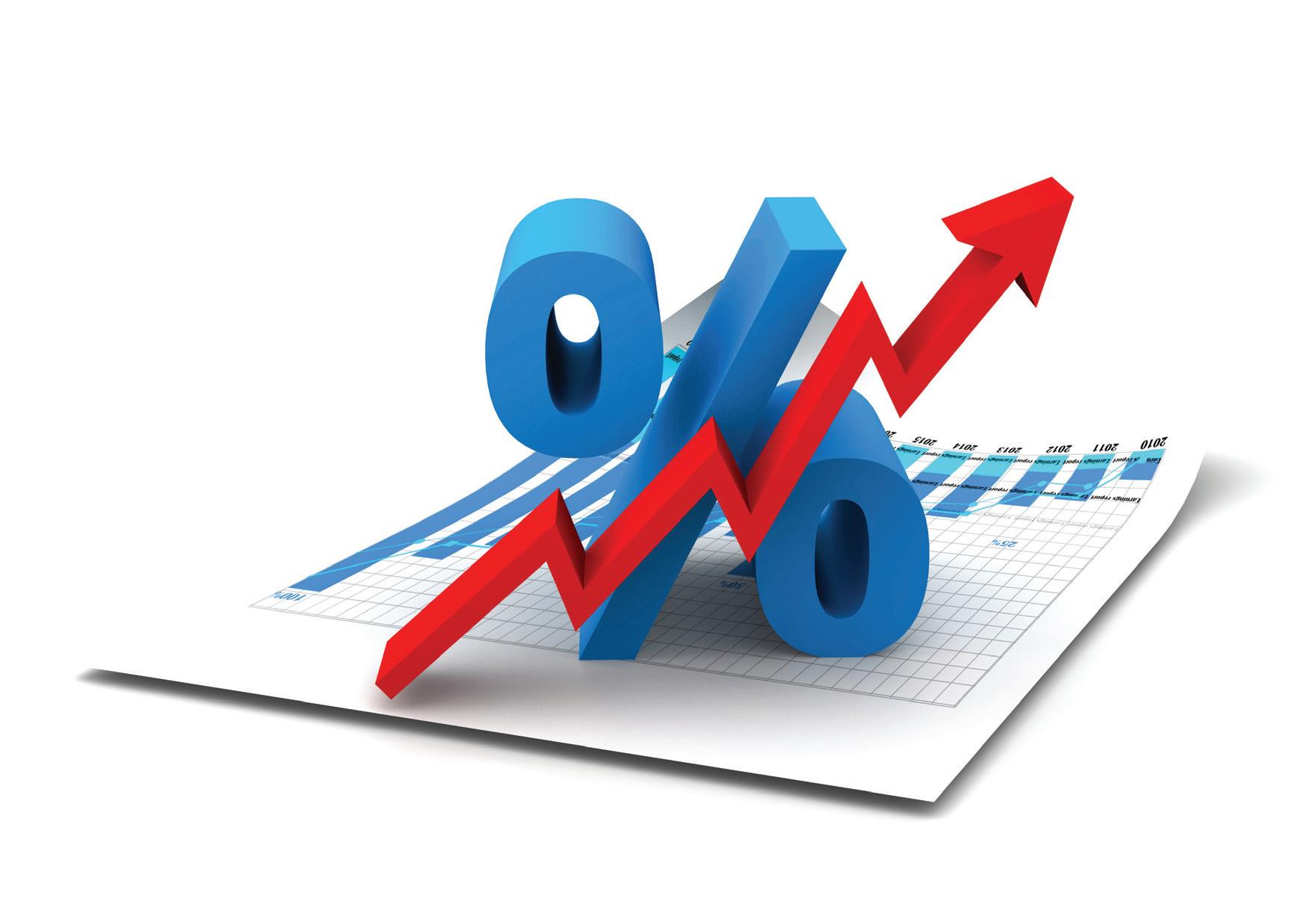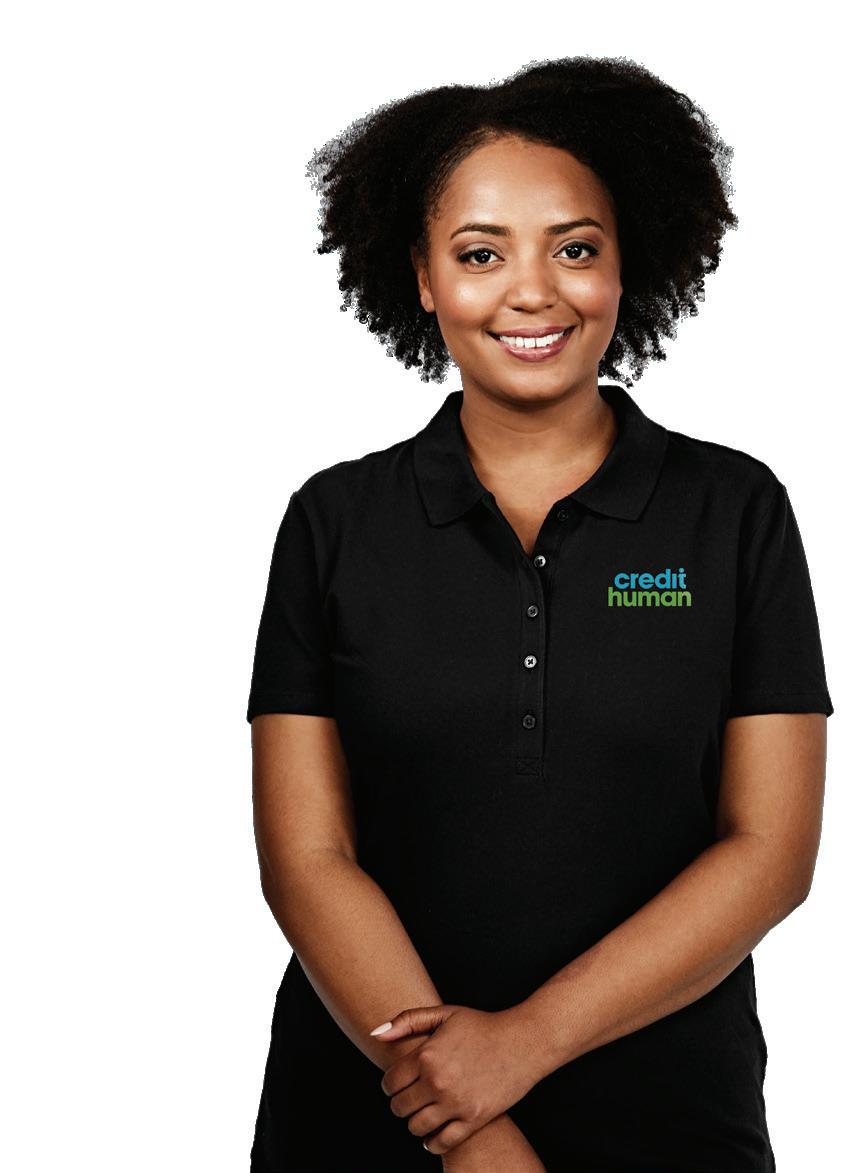
4 minute read
How Rising Interest Rates Erode Value
by Kevan Enger
HHistorically low unemployment, growing payrolls, and rising consumer spending have combined with continuing supply chain challenges in what is being called
The Great Supply Chain Disruption. Add the war in Ukraine to the mix and we now have a historically unique combination of forces that has pushed inflation to a 41-year high of 8.5 percent in
March of this year.
Inflation happens when prices go up as a result of an increase in production costs, raw materials, and labor. Over the past year, this cost-push inflation has been exacerbated by an increase in demand for goods and services that has exceeded supply and the ability to produce goods at a rate that meets that demand.
This skyrocketing inflation has led the Fed, whose job it is to promote the health of the U.S. economy and the stability of the financial system, to increase its benchmark interest rate. The first hike came in March of this year marked by a quarter of a percentage point, followed by a second boost of half a percentage point in May, and three quarters hike in June.
The moves prompted the prime rate to increase to 4.25 percent. The prime rate is what banks charge their best and most creditworthy customers and is used as a basis for other loans such as mortgages, home equity loans and lines of credit, small business loans, and personal loans.
What most mobile home community owners don’t realize, however, is that rising interest rates also have an impact on their park’s property value.
And the impact can cost you millions of dollars.
On the Horizon
The Fed raised the rate by three-quarters of a percentage at the July meeting, and is expected to raise it by at least a quarter-percentage point two more times this year.
The current prime rate of 4.25 percent is up from 4 and 3.50 percent in March but still below 2019's 5.25 percent (8/1/19) or 2018's high of 5.5 percent (12/20/2018). However, it will go back up as a result of the upcoming Fed hikes.
The majority of mobile home parks are acquired using leverage, mostly agency financing via Fannie Mae and Freddie Mac, but other types of loans as well. Although Fannie and Freddie loan rates are typically lower than standard loans, their rates will also increase. This means that buyers will be paying more for the capital they use to acquire a mobile home community.
This is significant because if the cost of capital goes up for borrowers, it follows that buyer’s returns will be impacted, and as a result, so will cap rates.
While there is still a lot of demand for manufactured home communities as an asset class, acquisitions must have positive leverage otherwise they just won’t make sense.
And this is why sellers must pay attention. »
Industry News Timing Is Everything
At the moment, the hikes haven’t impacted deal flow but there is more trepidation in the market from buyers and more urgency from sellers.
This urgency is not unwarranted. Here’s why.
Let’s assume you have a park that is currently valued at $20 million. In a primary market, your community may be at a high 3 percent cap rate. If the property is located in a tertiary market you may be looking at a low 5 percent or high 4 percent cap rate.
If the park has a $700,000 NOI, and cap rates move up by 100 basis points or just 1 percent from 3.5 percent to 4.5 percent, for example — it will erode your property’s value by about $4.4 million.
Instead of $20 million your property is now worth $15.56 million. I don’t know about you but I would rather keep that $4.4 million instead of seeing it simply vanish.
If the cap rate increases by just a half-percentage point, you are still down $2.5 million. That is better than the $4.4 million but still $2.5 million more than what I am willing to give up.
This amount of money alone can have a generational impact on a family, fund a worthy cause for years, or be the beginning of a new portfolio of properties or investments.
Now imagine the impact if you have multiple properties.
Aside from interest rates, buyers will also have to weigh
Discover the Credit Human difference
Where we’re committed to:
Improving the lives of the people we serve. Crafting consumer lending programs with your needs in mind. Making a complex process smooth and simple.

NMLS# 486243 Contact us at: MHinfo@CreditHuman.com the increasing cost of repairs, labor, and materials — all components that will impact a community’s NOI.
With at least three more interest rate hikes forecasted this year, timing has never been more important.
Mobile home park owners who have been thinking about selling or think they may want to sell in the next three to five years should consider their timing and the repercussions of the changing economic conditions on the value of their property.
The first step toward making the best decision for your property is to request a broker opinion of value from a reputable seller-focused broker that specializes in selling mobile home communities and understands the current landscape.
With an estimate of your property’s on-market value in hand, you can then decide if selling now makes the most sense for you, or if you rather hold for the next three to five years. MHV
Kevan Enger is a partner and manufactured housing director for Capstone MH. He specializes in helping mobile and manufactured home park property owners across the country successfully position, market, and sell their properties to maximize their returns. Capstone has seven offices in five states throughout Florida, the Southeast, Midwest, and Mid-Atlantic.










